Discovering a water leak behind your wall can feel stressful. You might notice peeling paint, damp drywall, or a musty smell without seeing any visible source of water. At that point, most homeowners wonder who to call for water leak in wall and how to prevent the problem from spreading. The answer depends on the source of the leak and how quickly you act. Understanding which professional to contact first can save you time, money, and frustration.
The team at Icon Home Inspectors helps homeowners identify hidden leaks early. Our experienced inspectors use moisture detection tools and thermal imaging to find the cause before serious damage occurs. Knowing who to call is important, but knowing what is happening behind the wall is even more valuable.
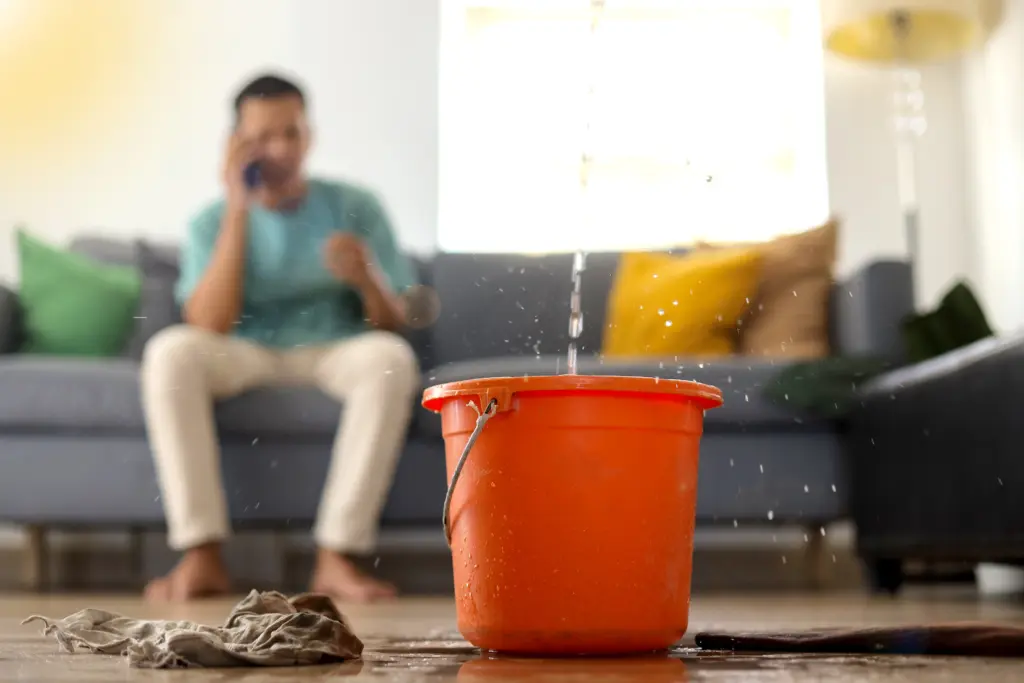
Recognizing the Signs of a Water Leak
Leaks behind walls often begin small and stay hidden for weeks or even months. By the time you see visible symptoms, moisture has usually spread through drywall, studs, or insulation. Common warning signs include bubbling paint, stains on walls or ceilings, warping trim, and a persistent damp odor. You might also hear faint dripping or notice an unexplained increase in your water bill.
If you see these signs, turn off the water supply to the affected area and contact a professional as soon as possible. Ignoring a leak can lead to mold growth, structural damage, and electrical risks if water reaches wiring inside the wall.
Why Water Leaks Behind Walls Are Dangerous
Water trapped behind walls is more than an inconvenience. It can quietly destroy building materials and threaten indoor air quality. Moisture softens drywall and insulation, leading to sagging, crumbling, and eventual collapse. It also creates a perfect environment for mold, which spreads quickly and releases spores that can cause allergies and respiratory irritation.
In addition, hidden leaks can affect electrical systems. When water contacts wiring or outlets, the risk of shorts and electrical fires increases. The structural framing of your home may also weaken over time as moisture causes wood to warp and rot. These issues often remain invisible until damage becomes severe, which is why early detection is critical.
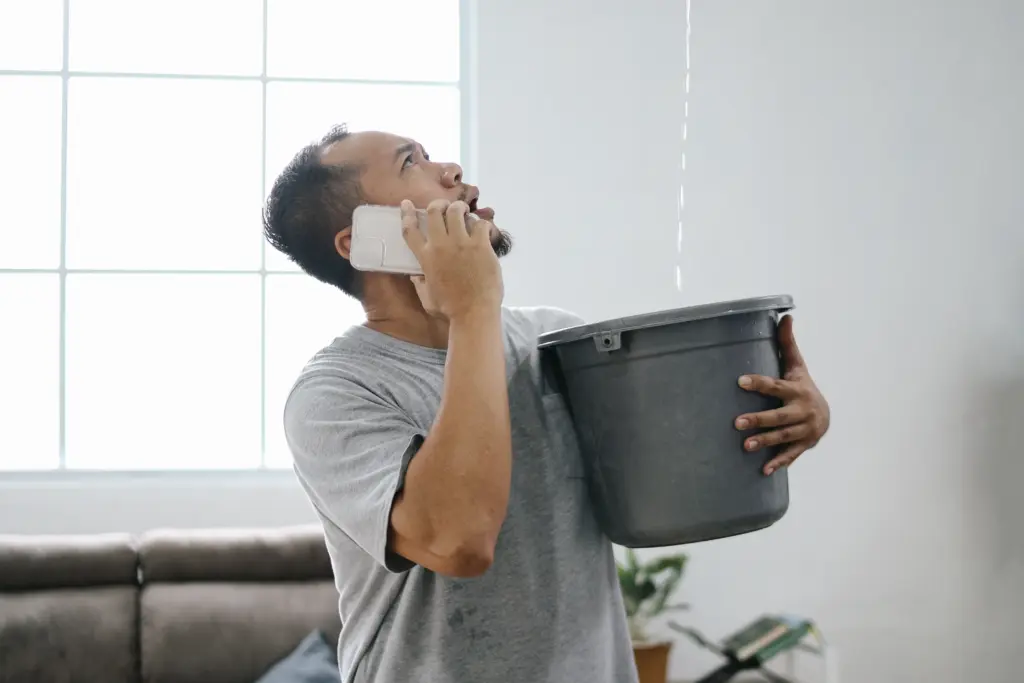
Who to Call First
When you suspect a leak in your wall, the first call should be to a qualified home inspector or leak detection specialist. Icon Home Inspectors provides noninvasive inspections that locate leaks using advanced tools such as infrared cameras and moisture meters. This approach helps pinpoint the exact source without unnecessary demolition or guesswork.
Many homeowners mistakenly contact a plumber first. While plumbers are skilled at repairing pipes, they often address the symptom rather than the full extent of the problem. A home inspector evaluates the entire situation, identifying structural damage, insulation saturation, and potential mold development in addition to the plumbing issue itself.
Once the inspection confirms the leak’s location and cause, your inspector can recommend the next professional to contact, whether that is a licensed plumber, water damage restoration company, or contractor for repairs.
The Role of a Home Inspector in Leak Detection
A professional home inspector is trained to identify early signs of leaks and determine where water is coming from. At Icon Home Inspectors, we use equipment that senses temperature differences and moisture levels inside walls, ceilings, and floors. These readings show exactly how far the water has traveled and what materials are affected.
This comprehensive assessment gives homeowners a clear understanding of the damage before calling in other specialists. In many cases, the inspection report becomes the roadmap for the plumber or restoration team to follow. That means faster repairs and fewer surprises during cleanup.
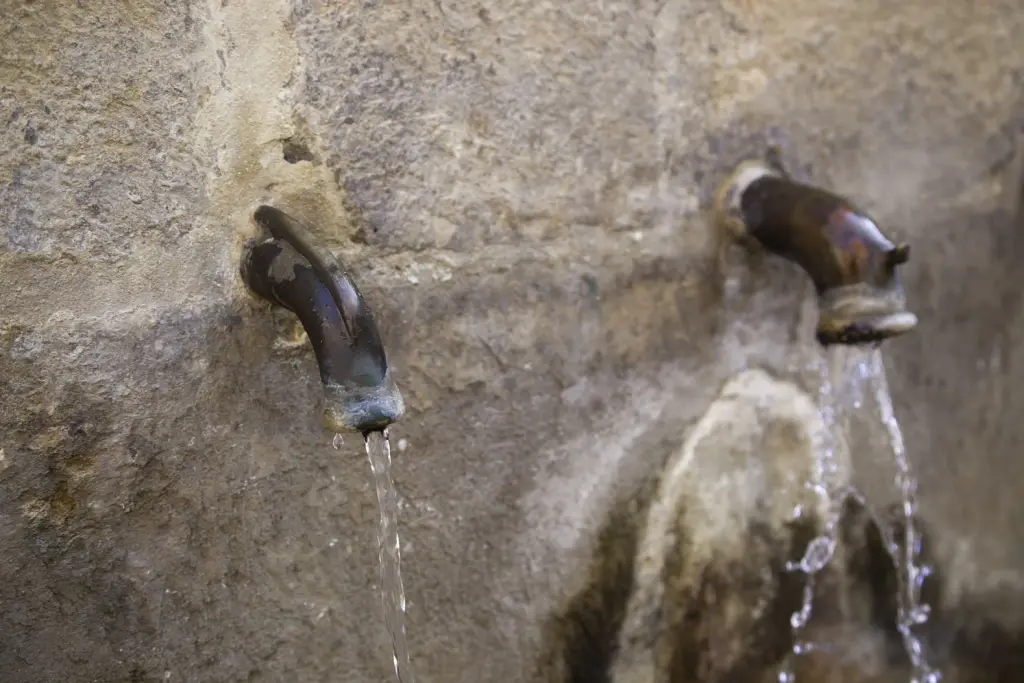
When to Call a Plumber
Once the source of the leak is confirmed, a licensed plumber should handle the repair if it involves supply lines or drain pipes. Plumbers can replace damaged pipes, fittings, or valves and ensure that your plumbing system is sealed properly. If the leak originates from an appliance connection such as a dishwasher or refrigerator, the plumber can test those fittings as well.
In older Ohio homes, aging copper or galvanized pipes are common causes of leaks inside walls. Replacing sections of outdated piping with modern materials like PEX can prevent future problems. Your home inspector can help you determine if this kind of proactive replacement makes sense for your home.
When to Call a Restoration Company
After the plumbing issue is fixed, it’s important to address any water damage left behind. That is where a professional water damage restoration company comes in. These specialists dry out affected areas using fans, dehumidifiers, and moisture meters to prevent mold growth and structural decay. They also clean and sanitize surfaces to restore indoor air quality.
Restoration companies often work closely with home inspectors and insurance providers to document damage for claims. However, they should only begin work once an inspector has identified all moisture-affected zones. This ensures no hidden dampness remains behind walls or under flooring.
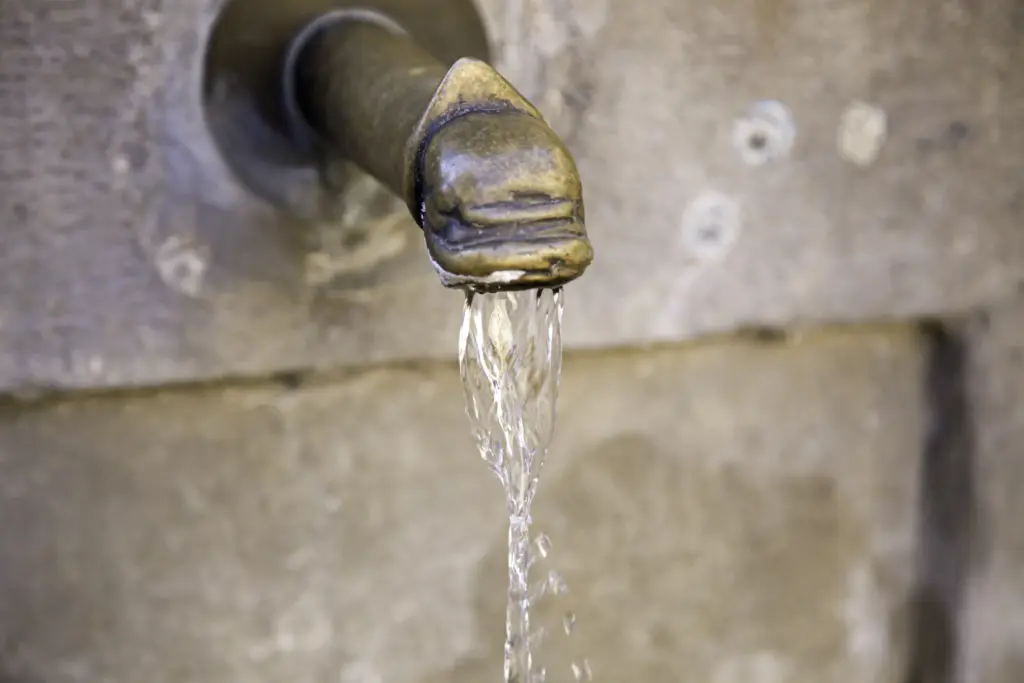
When to Call a General Contractor
In cases where a leak has caused extensive drywall or flooring damage, a general contractor may be needed to complete repairs. They handle rebuilding walls, repainting, replacing insulation, and installing new finishes once the area is fully dry. Your home inspector can advise when this step is necessary and help coordinate repairs in the proper sequence to avoid reintroducing moisture.
How Inspections Prevent Future Leaks
Leaks often reveal broader maintenance issues. During a professional inspection, the Icon Home Inspectors team not only identifies the current problem but also looks for risk factors that could cause future leaks. That includes checking for poor plumbing insulation, aging fixtures, or drainage issues that direct water toward the foundation.
Routine inspections also catch small issues before they turn into emergencies. A slow drip today could become a burst pipe tomorrow, especially during cold Ohio winters. Scheduling an annual inspection is an affordable way to safeguard your home against costly repairs.
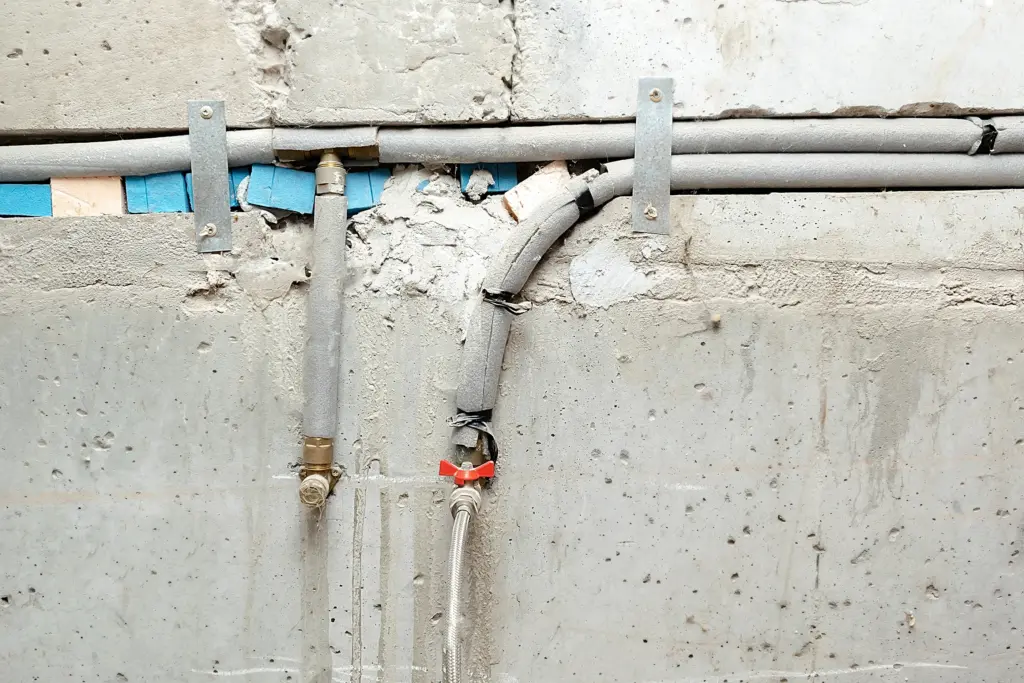
How to Handle Mold After a Leak
If a leak has been present for several days, mold may already be forming. Mold grows within 24 to 48 hours when moisture is trapped indoors. Once detected, it needs professional remediation. Home inspectors can identify visible mold and test moisture-prone areas to confirm whether it has spread.
After mold removal, another inspection can verify that humidity levels are stable and no hidden moisture remains. This process ensures your home remains safe and healthy. The U.S. Environmental Protection Agency provides additional resources on safe mold cleanup and moisture control for homeowners.
Preventing Leaks Before They Happen
While not all leaks are avoidable, proactive maintenance significantly reduces risk. Regularly check under sinks, around toilets, and behind appliances for dampness or corrosion. Keep gutters and downspouts clean to prevent exterior water from seeping into walls. Monitor your water bill for unexplained increases, which may signal a slow leak somewhere in your system.
Scheduling inspections through Icon Home Inspectors is another smart preventive step. Our inspectors use advanced diagnostic tools to evaluate your plumbing system and detect early signs of trouble that are invisible to the naked eye. Catching these issues early often prevents major damage later.
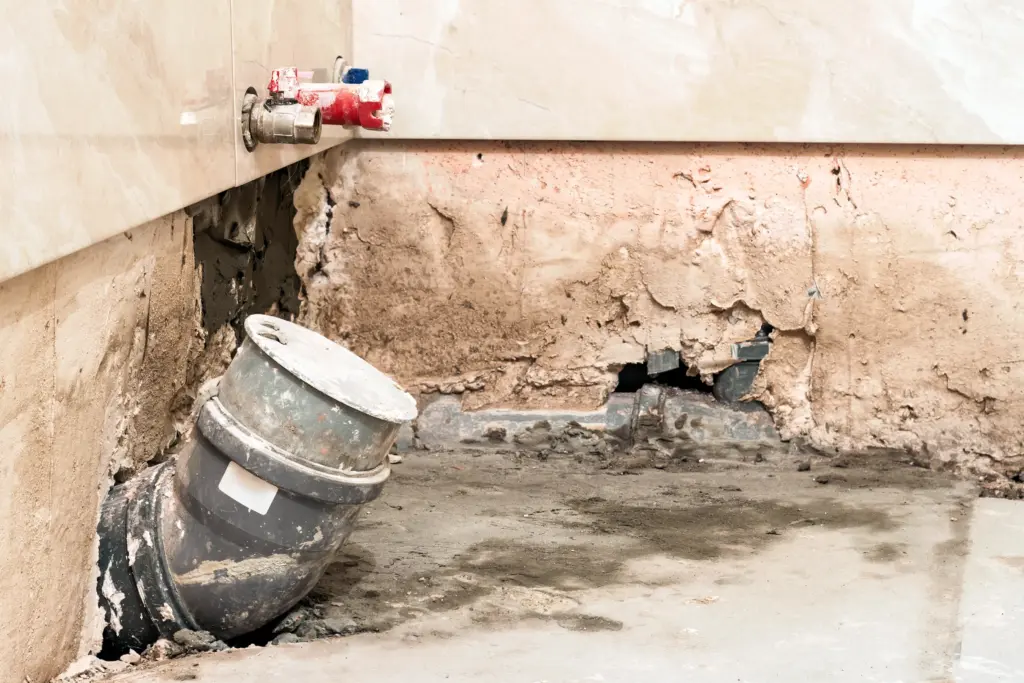
Insurance and Water Damage
Homeowners insurance may cover certain types of water damage, depending on the cause. Sudden pipe bursts or accidental leaks are often covered, while gradual wear and neglected maintenance may not be. A professional inspection report helps document the problem clearly for your insurer, improving your chances of approval and accurate reimbursement.
In every case, act fast. Contacting an inspector and plumber immediately helps contain damage and shows your insurer that you took reasonable steps to address the issue.
Working with Local Experts
For homeowners in Ohio, local expertise matters. Many homes in this region experience freeze-thaw cycles that stress plumbing systems and cause leaks over time. Icon Home Inspectors understands these local conditions and uses that knowledge to provide thorough, region-specific leak detection and inspection services.
Our process is transparent and detailed. We start with an inspection to identify the source, explain findings in clear terms, and guide homeowners toward the right solution. Whether the leak stems from a failed pipe, roof runoff, or condensation issue, we provide a plan to fix it and prevent recurrence.
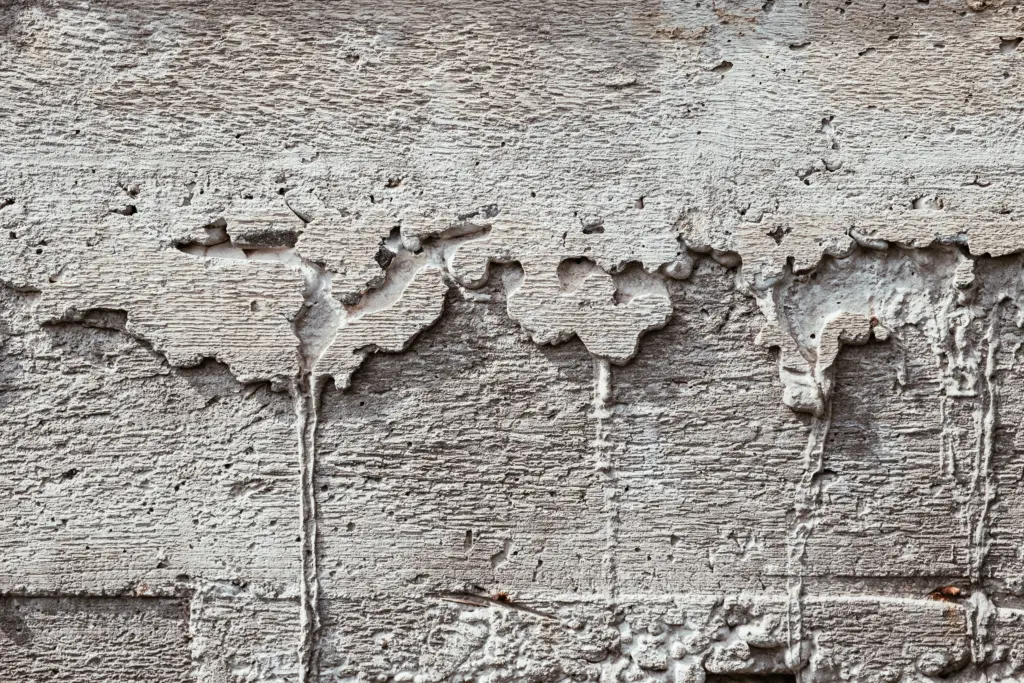
Final Thoughts
Knowing who to call for water leak in wall can make all the difference between a small repair and a major renovation. Start by calling a trusted home inspector who can locate the leak, assess the extent of damage, and recommend next steps. From there, licensed plumbers, restoration companies, or contractors can handle the repair work efficiently.
When you need reliable leak detection and inspection, Icon Home Inspectors is ready to help. Our inspections combine advanced technology with professional insight to identify problems early and protect your property. Learn more about our inspection services today and take the first step toward a dry, safe, and structurally sound home.